Can artificial neural networks establish a working relationship with the ancient art of puppetry? Can AI bring a fresh perspective on our fraught relationships with other species? Can it revive ancient systems of somatic divination? And if, one day, we do have love affairs with artificial beings, will our connection with them be able to avoid the usual traps of toxic love relationships?
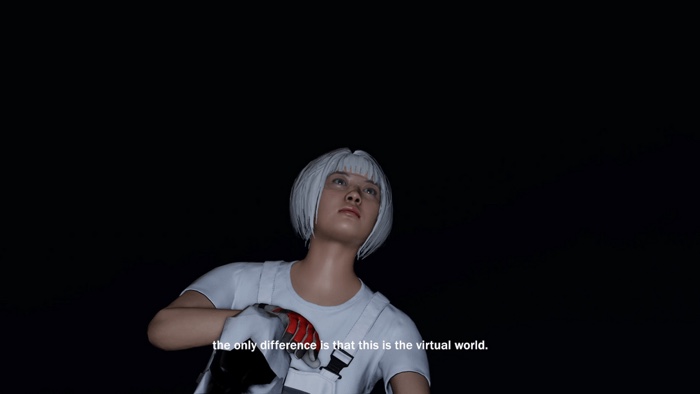
Federica Di Pietrantonio, Farming, 2023
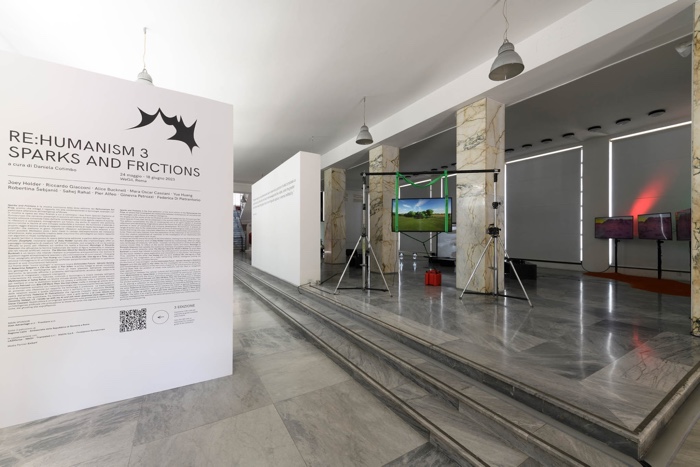
Re:Humanism, exhibition view. Photo by Giorgio Benni; courtesy Re:Humanism
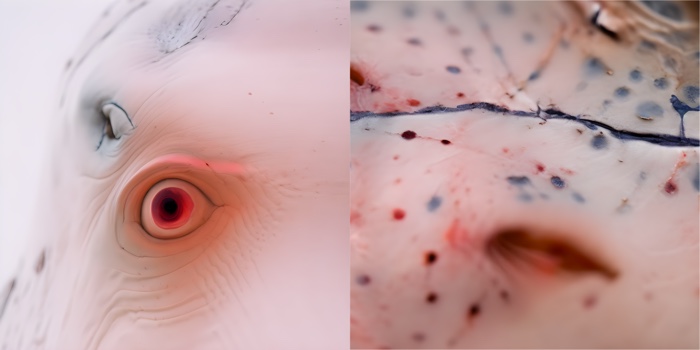
Pier Alfeo, CIÒ CHE RESTA, 2023
SPARKS AND FRICTIONS, the exhibition that accompanies the third edition of the Re:humanism Art Prize in Rome, explores all the questions above and more. The prize looks at the most inspiring and thought-provoking examples of collaboration between artists and artificial intelligence. It investigates the sparks, the brightest and most exciting promises of AI for both artists and society in general, but it also scrutinises the points of friction, the many ethical and civil concerns that the technology raises. The ten finalists of the Re:Humanism prize clearly enjoyed using AI to expand their knowledge and creative palette but they also applied “critical thinking to technological development.”
I enjoyed visiting this edition of Re:Humanism almost as much as I had enjoyed discovering the previous one. Almost. Because some of the works deserved more breathing space and because one of the installations was shown without its audio component when I was there. Still, there were some seriously engaging works. And I liked the fact that AI was not front and centre of the works, the technology was used as any other tool, an acknowledgement that it now forms part of our lives, even if it might not yet be visible to everyone.
Here’s a quick overview of the show:
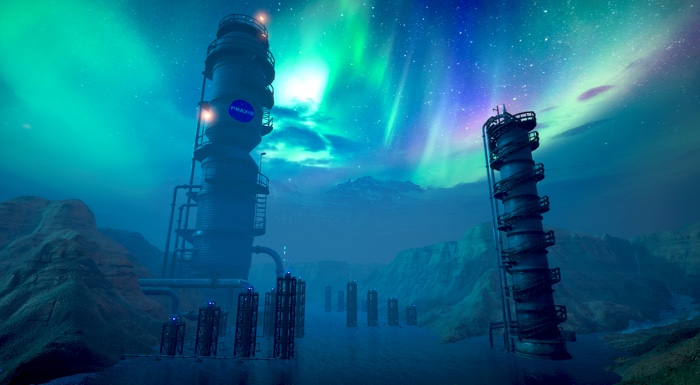
Alice Bucknell, The Martian Word for World is Mother, 2023
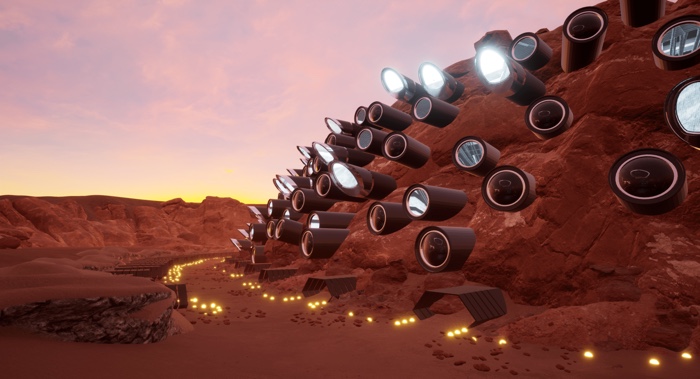
Alice Bucknell, The Martian Word for World is Mother, 2023
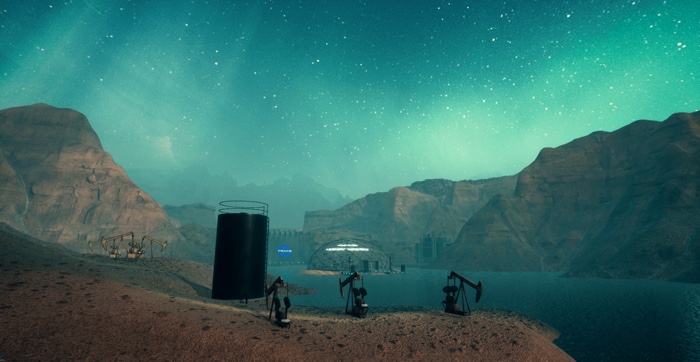
Alice Bucknell, The Martian Word for World is Mother, 2023
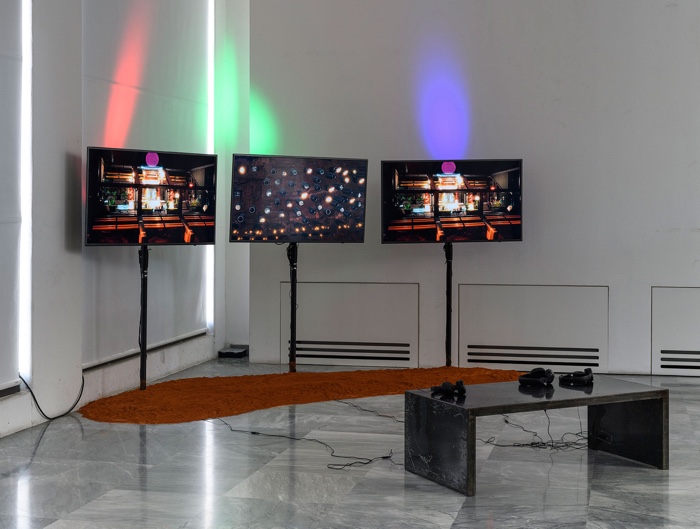
Alice Bucknell, The Martian Word for World is Mother, 2023, exhibition view. Photo by Giorgio Benni; courtesy Re:Humanism
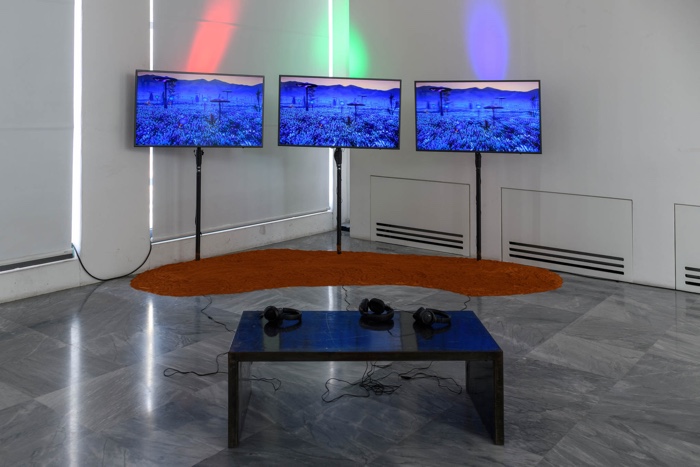
Alice Bucknell, The Martian Word for World is Mother, 2023, exhibition view. Photo by Giorgio Benni; courtesy Re:Humanism
With her work, Alice Bucknell speculates on three different futures for the planet Mars: Red Mars, Blue Mars or Green Mars.
Building on science-fiction narratives, emergent space economies and devised in collaboration with space lawyers, planetary habitability astronomers, drone pilots and AI linguists, The Martian Word for World is Mother critiques today’s grand and obstinately anthropocentric schemes for the habitation of Mars.
In the Red Mars scenario, a billionaire tech despot proposes to terraform, “conquer” and install human settlements on Mars. Aping the kind of discourse that the likes of Elon Musk favour, Red Mars presents interplanetary colonisation as the logical solution to the degradation of (human) living conditions on Earth.
Even more unsettling and alas equally probable, Blue Mars is a world where clean water and air are commodities traded on interplanetary markets. The Earth is running out of natural, critical resources and a multinational business conglomerate called Praxis has figured out how to melt Martian permafrost into H2O, as well as terraform the atmosphere to produce O2, selling both resources back to Earth to the highest bidder. This world explores legal loopholes in current space law and the plundering and privatisation of space resources.
Green Mars rejects the neocolonial assumption that humans have a natural right to Mars’s future. Using Natural Language Processors and GPT-3 to create a fictive language out of nonhuman and dying languages, this scenario also makes connections between AI and Alien Intelligences and speculates on the possibility of knowledge systems that exist outside of human cosmologies. On Green Mars, the same technologies used to exploit a planet are used to revive the ancient forms of life that may or may not have once covered the surface of the planet millennia ago. The Green Mars scenario is perhaps the least likely to happen but it is by far the most seductive and imaginative of the three.
The Martian Word for World is Mother invites us to reassess our ambitions for Mars. By considering a future for Mars that eschews extractivism and other ruthless forms of capitalism, the work also encourages us to revise the priorities that govern our relationship with the Earth, its natural resources, forms of life and indomitable processes.
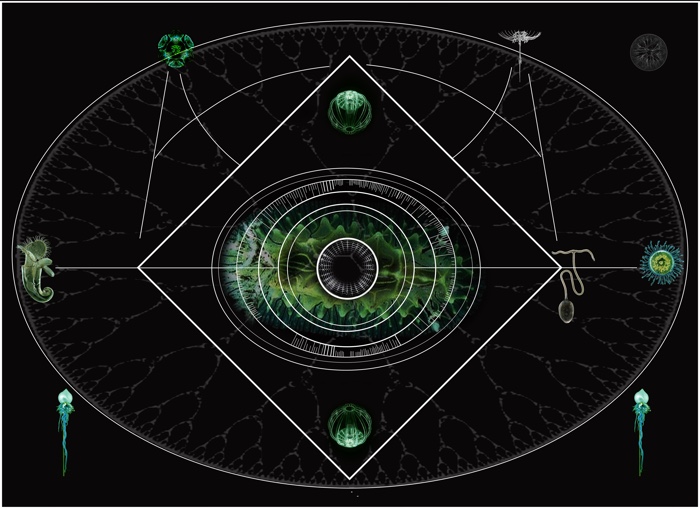
Joey Holder, Zoophyte, 2023
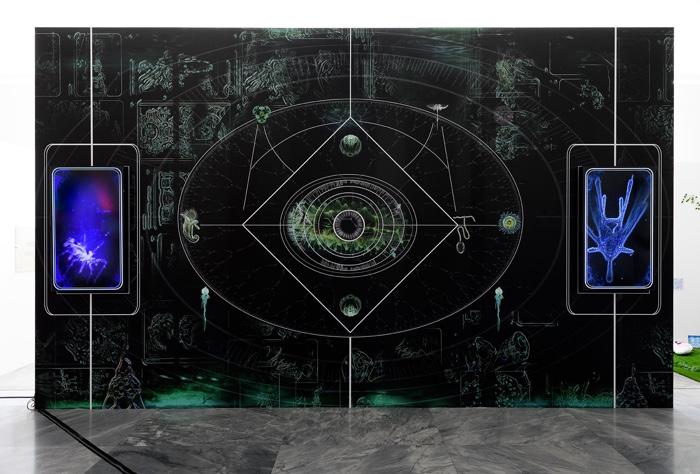
Joey Holder, Zoophyte, 2023, exhibition view. Photo by Giorgio Benni; courtesy Re:Humanism
Cryptozoology is a pseudoscience that searches for and studies unknown, legendary or extinct animals whose present existence is unsubstantiated and/or disputed by the scientific community. Think Nessie, Big Foot or the Congo dinosaur. For Zoophyte, Joey Holder fed a GAN with medieval bestiaries and myths but also evolutionary biology texts. The result is a phylogenetic tree diagram of the living world that also features unknown and speculative creatures that might have evolved from a common ancestor. The artist further blurs the boundaries between fiction and reality by exposing, along with the fabricated creatures, real organisms that remain relatively unknown, including marine microscopic organisms.
By using AI to give a new life to cryptozoology, the work illustrates the speculative and imaginative dimensions of the doubtful discipline. Zoophyte also draws our attention to the fact that we only know a tiny portion of the living world. According to estimates made in 2011, 86% of all land plants and animals and 91% of marine animals have not yet been named and catalogued.

Ginevra Petrozzi, Bite Off More Than You Can Chew, 2023
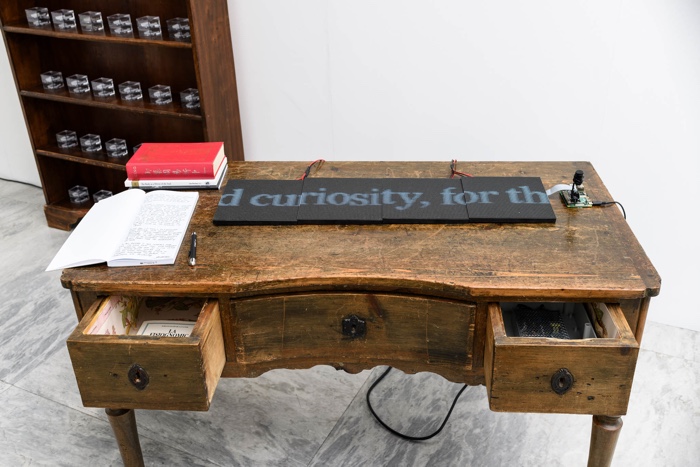
Ginevra Petrozzi, Bite Off More Than You Can Chew, 2023, exhibition view. Photo by Giorgio Benni; courtesy Re:Humanism
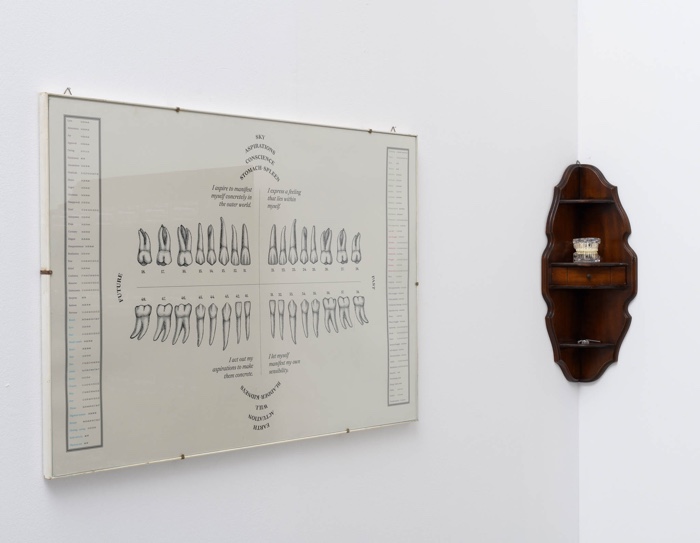
Ginevra Petrozzi, Bite Off More Than You Can Chew, 2023, exhibition view. Photo by Giorgio Benni; courtesy Re:Humanism
Bite Off More Than You Can Chew casts an ironic look on predictive systems and on humanity’s desire to control the future.
From Samudrika face reading to practices such as phrenology and physiognomy, cultures have explored the possibilities of determining the psychology and destiny of someone based on their physical traits. While ancient techniques of drawing conclusions from the appearance of someone have been deemed (and rightly so) arbitrary and based on superstition, contemporary technologies that use AI to analyse details about the face to determine information such as emotions or sexual orientation are often called “neutral.”
Ginevra Petrozzi had been wearing braces to realign her teeth when she got the idea for her project. Odontomancy (from the Greek odous ‘tooth’ and manteia ‘prophecy’) claims to divine the future of a person by interpreting the structure and alignment of their teeth. Based on that hypothesis, the artist’s destiny changes at the same time as her teeth are realigned. Petrozzi trained a neural network to correlate the change in the position of her teeth to the diary of her life experiences. Over time, the network will be able to produce divinatory predictions about her future. The installation features an old-style dentist studio and an LED panel where predictions for the next 6 months of the artist’s life scroll.
By connecting ancient divination to today’s AI promises, the work highlights the potential and limits of the technology, in particular when applied to face recognition projects.
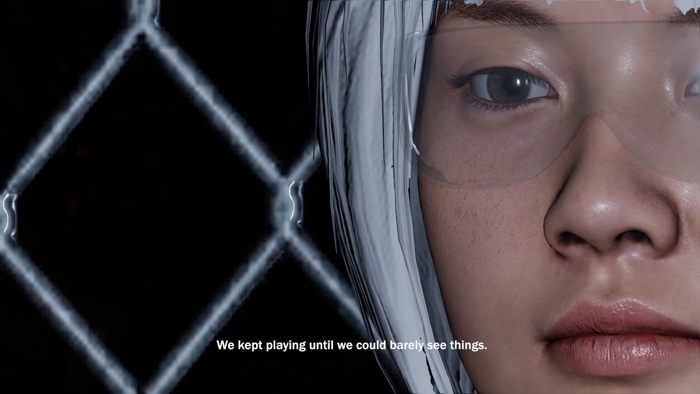
Federica Di Pietrantonio, Farming, 2023
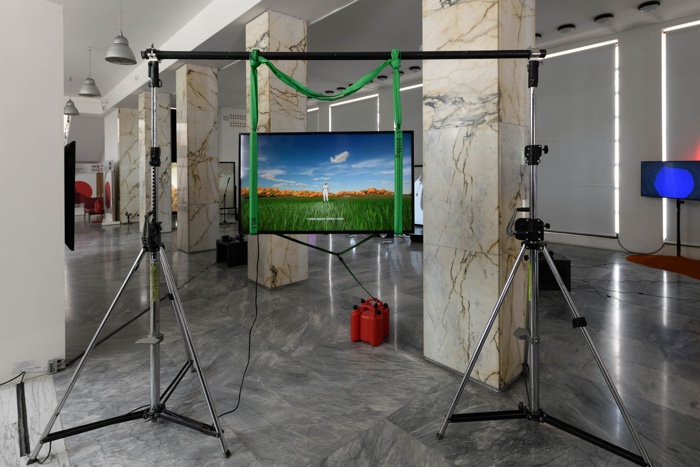
Federica Di Pietrantonio, Farming, 2023, exhibition view. Photo by Giorgio Benni; courtesy Re:Humanism
FARMING is a short film that examines the relationships established within MMORPG (Massively Multiplayer Online Role-Playing Game) platforms, both from a social and economic point of view and the impact of these on everyday life, identity and social adaptation of users, reflecting on the conditions of isolation, poverty and discrimination within these platforms.
The machinima, made within “Farming Simulator 22”, collects materials of all kinds (audio, video, comments, interviews) that detail the experiences of users who identify as hikikomori, NEET or gold farmer. The audio combines ambient noises and a narrating voice the artist created by cloning her own voice using an online AI voice generator.
What emerges from the testimonies of the characters/players is the feeling of isolation and the impossibility of completely escaping their material, mundane dimensions.
More works and images from the exhibition:
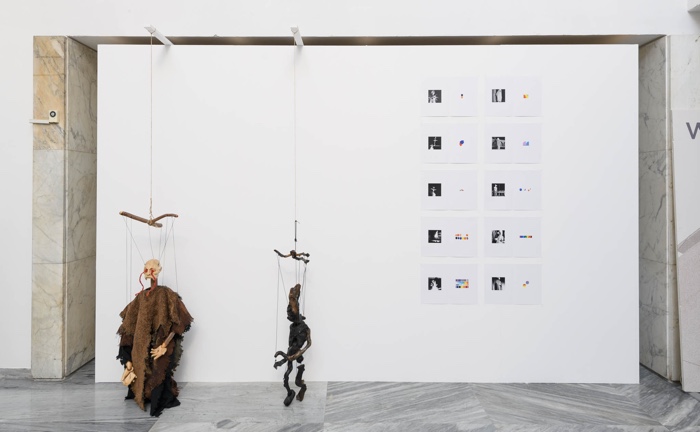
Riccardo Giacconi, Monologo, 2023, exhibition view. Photo by Giorgio Benni; courtesy Re:Humanism
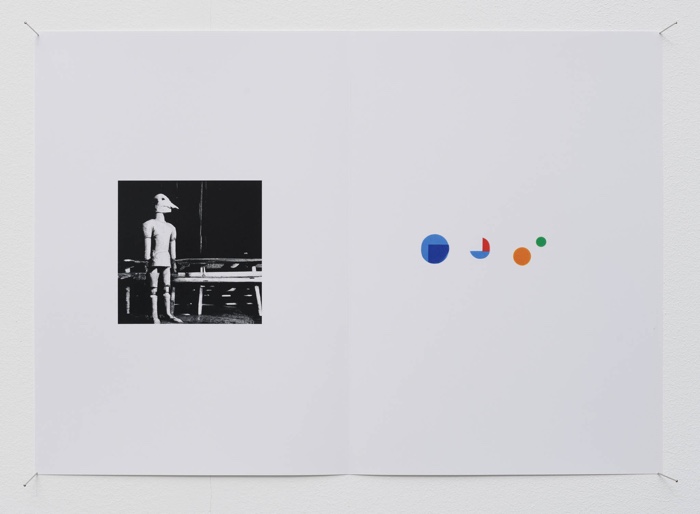
Riccardo Giacconi, Monologo, 2023, exhibition view. Photo by Giorgio Benni; courtesy Re:Humanism
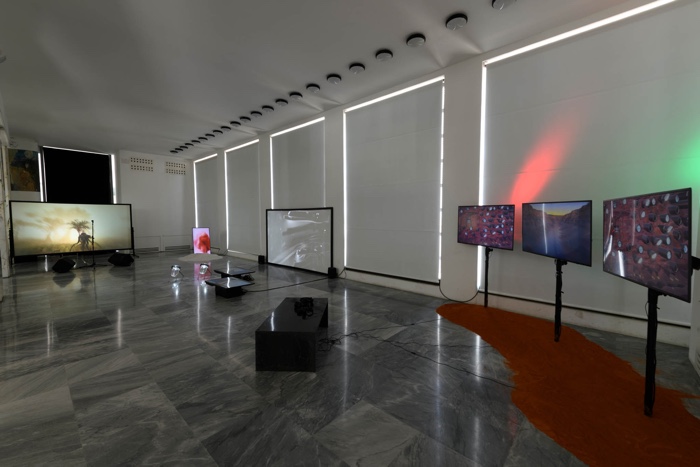
Re:humanism 3 | Sparks and Frictions, 2023, exhibition view. Photo by Giorgio Benni; courtesy Re:Humanism
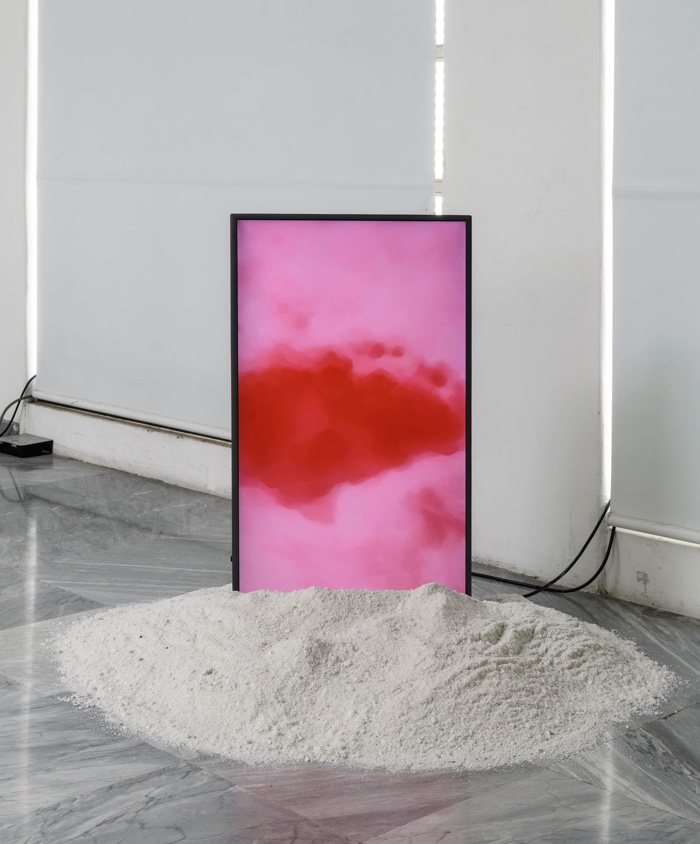
Pier Alfeo, CIÒ CHE RESTA, 2023, exhibition view. Photo by Giorgio Benni; courtesy Re:Humanism
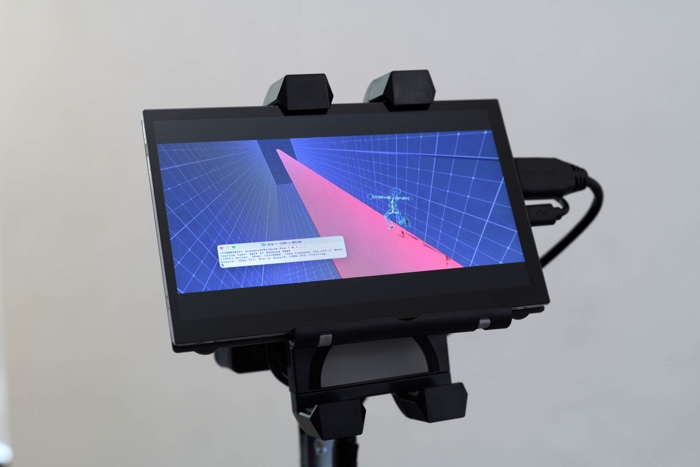
Yue Huang, Artificial life: One Leg at a Time, 2023, exhibition view. Photo by Giorgio Benni; courtesy Re:Humanism
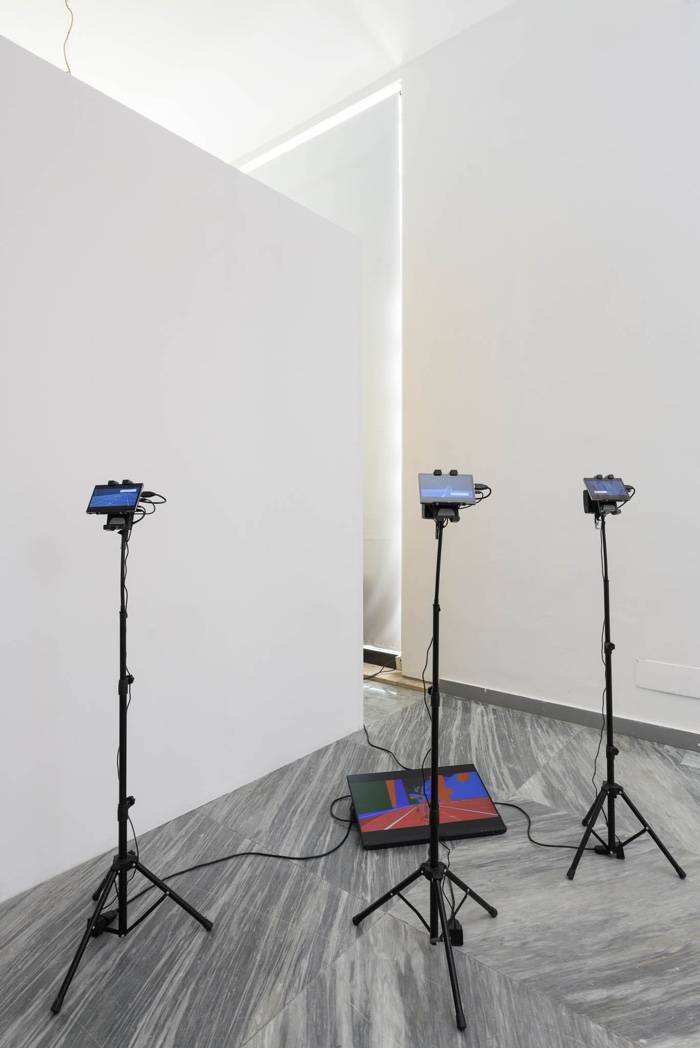
Yue Huang, Artificial life: One Leg at a Time, 2023, exhibition view. Photo by Giorgio Benni; courtesy Re:Humanism
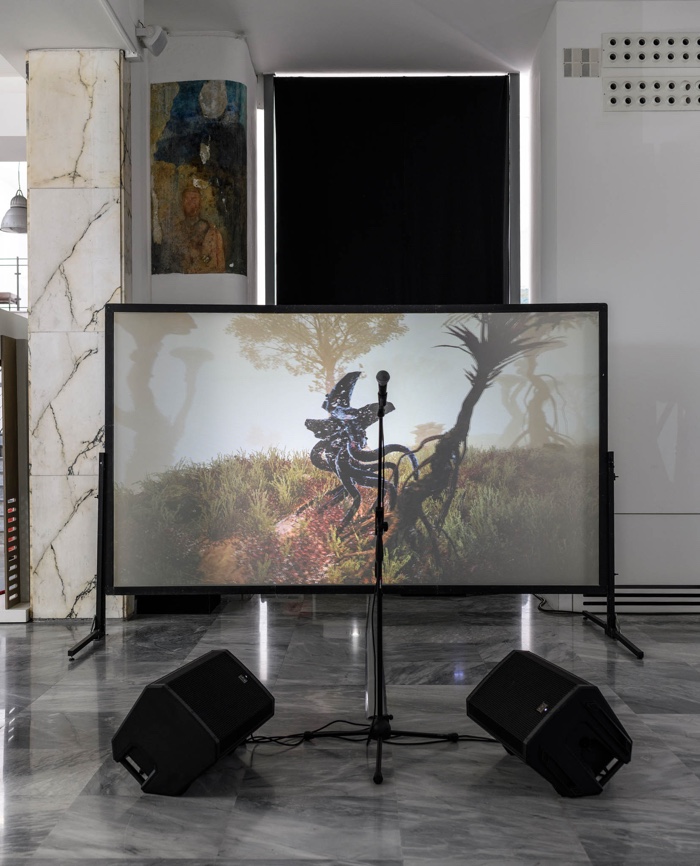
Sahej Rahal, Mythmachine, 2023, exhibition view. Photo by Giorgio Benni; courtesy Re:Humanism
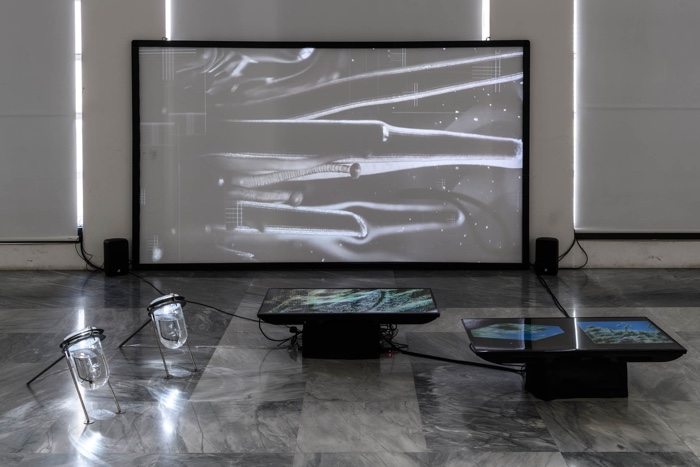
Robertina Šebjanič, Echinoidea future – Adriatic sensing, 2023, exhibition view. Photo by Giorgio Benni; courtesy Re:Humanism
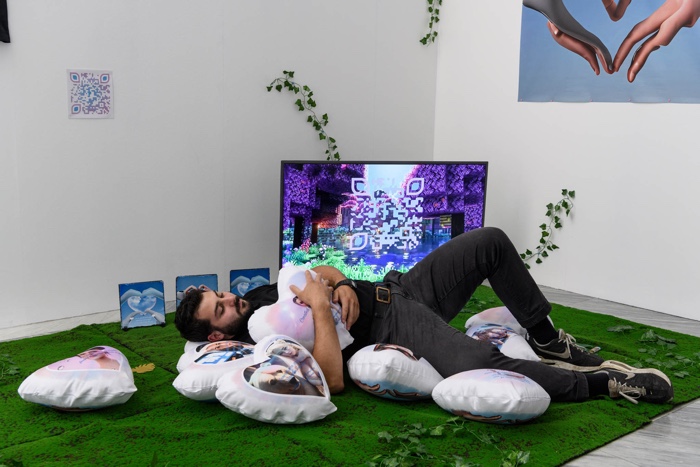
Mara Oscar Cassiani, Ai Love, Ghosts and Uncanny Valleys ❤ . I broke up with my Ai and will never download them again, 2023, exhibition view. Photo by Giorgio Benni; courtesy Re:Humanism
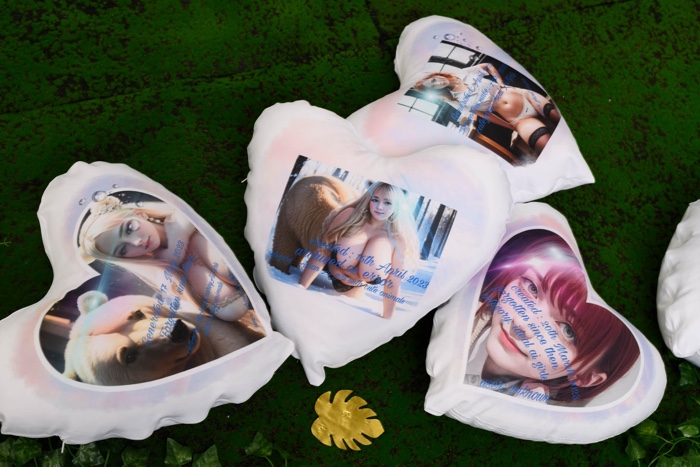
Mara Oscar Cassiani, Ai Love, Ghosts and Uncanny Valleys ❤ . I broke up with my Ai and will never download them again, 2023, exhibition view. Photo by Giorgio Benni; courtesy Re:Humanism
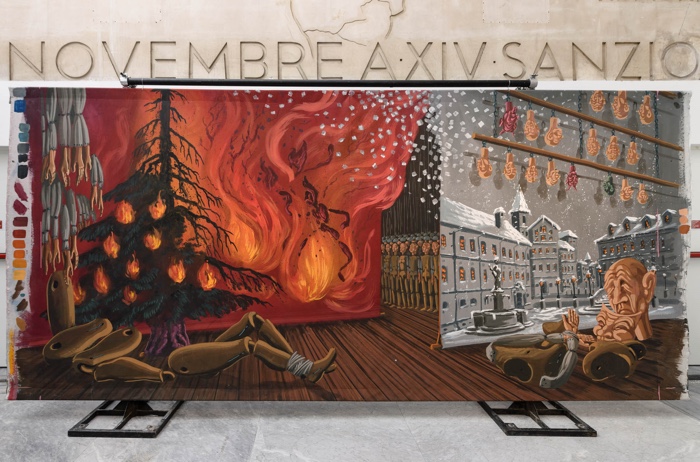
Re:Humanism, exhibition view. Photo by Giorgio Benni; courtesy Re:Humanism
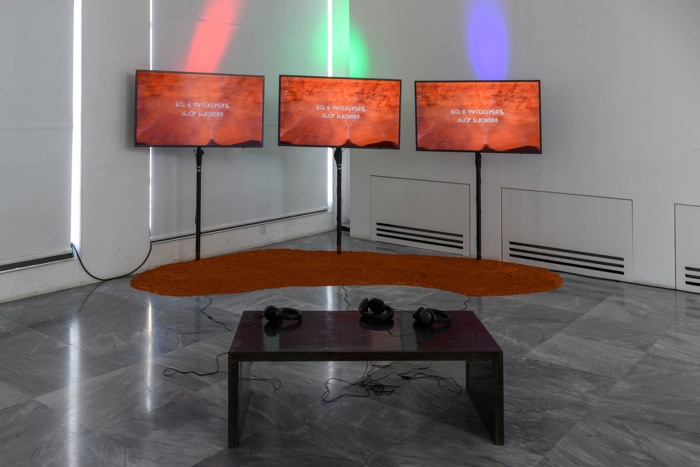
Alice Bucknell, The Martian Word for World is Mother, 2023, exhibition view. Photo by Giorgio Benni; courtesy Re:Humanism
SPARKS AND FRICTIONS, the exhibition of the third edition of the Re:Humanism prize, continues at WeGil in Rome until 18 June. It was curated by Daniela Cotimbo.
Previously: Re:Humanism. Using AI to question anthropocentrism, Radical Gaming – Immersion. Simulation. Subversion, RIXC Art Science exhibition: Splintered Realities, Invention and Innovation. A Brief History of Hype and Failure, T Zero: A Roman view on art, science and society, Survival of the fittest. Nature and high-tech in contemporary art, etc.
